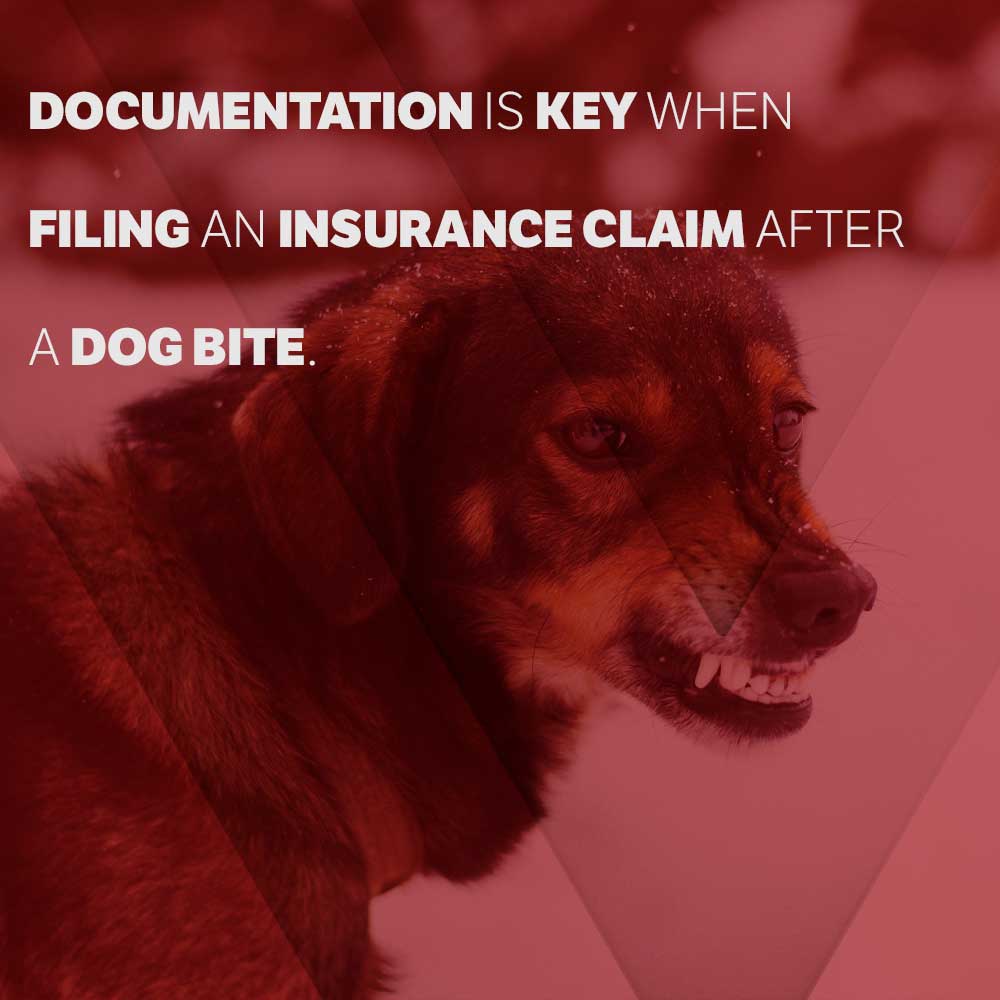
What you’ll learn from this article:
- How to seek immediate medical attention and properly document dog bite injuries and expenses to include in a dog bite insurance claim.
- The importance of gathering evidence like photos, witness statements, records of communication, and documentation of expenses related to the dog bite incident.
- That reporting the dog bite to authorities can establish an official record, prompt investigation, and provide information to support the insurance claim.
- That speaking to an experienced dog bite attorney can help assess the claim, determine reasonable settlement value, and handle communications and negotiations.
- How to file an insurance claim for a dog bite against the dog owner’s homeowner’s or renters insurance, including having the attorney submit documentation, negotiate a settlement, and potentially pursue further legal action.
If you or a loved one suffers a dog bite injury, you may be entitled to compensation for the resulting damages. This usually involves filing an insurance claim against the dog owner’s homeowner’s or renters insurance policy. Here is a step-by-step overview of how to file a dog bite insurance claim after sustaining an injury in Kentucky.
1. Seek Immediate Medical Attention

Your first priority should always be getting proper medical care for any dog bite. Even small puncture wounds can cause infections or other complications if not treated promptly. Be sure to thoroughly clean the injury, apply antibiotic ointment, and cover it. More serious bites may require immediate emergency care, stitches, or even surgery. Make sure to follow all medical advice for care instructions and recovery. Save all paperwork and bills related to medical treatment, as the costs can be included in your claim.
2. Document Everything Related to the Incident

Documentation is key when filing an insurance claim after a dog bite. Be sure to take pictures of any visible injuries from multiple angles. Photograph damage to clothing, belongings, or other property as well. Obtain contact details and statements from any witnesses to the incident. Also gather as much information as possible on the dog owner, including their name, address, and insurance details. Keep records of all communication regarding the incident. Having extensive documentation strengthens your ability to recover full compensation.
3. Report the Incident
You should report any dog bite incident to both local animal control and authorities and the Kentucky Department of Public Health and Wellness within 12 hours. This establishes an official record of the event, prompts investigation, and provides information on the biting dog’s health and vaccination status. Failure to report the bite could weaken your claim. The investigative findings from animal control can also help support an insurance claim if the dog displayed prior aggressive behavior.
4. Speak to a Dog Bite Attorney
An experienced Kentucky dog bite lawyer can assess your claim eligibility and strength. They also determine a reasonable settlement value based on the severity of your injuries, calculated damages, and insurance liability. An attorney handles all communication and negotiations for maximum compensation for medical bills, lost income, pain and suffering, and other applicable damages.
5. File Your Insurance Claim
You will typically file your dog bite insurance claim against the homeowner’s or renters insurance policy of the dog’s owner, provided their coverage extends to dog bite liability. Have your attorney submit the formal claim documentation on your behalf, backed by evidence like medical records, incident reports, and documented expenses. The insurance company investigates the claim and may either approve, deny, or make a counter-settlement offer. An attorney can negotiate for a satisfactory claim settlement or pursue further legal action if necessary.
Common Types of Dog Bite Damages
If approved, common types of insurance claim damages awarded for dog bite injuries can include:
- Medical expenses: Both immediate and long-term medical costs like hospital/ER bills, surgery, therapy, or rehabilitation.
- Lost income: Wages lost if bite injuries prevent you from working during recovery.

- Disability: Financial compensation for permanent inability or limitations in ability to work.
- Pain and suffering: Monetary damages for physical pain and emotional distress arising from trauma.
- Property loss: Reimbursement for costs of damaged belongings like clothing or bags.
- Miscellaneous expenses: Other costs such as traveling to medical appointments or caretaking help at home.
The exact value of your claim depends largely on the unique circumstances of your case. Having an experienced dog bite lawyer ensures you pursue maximum compensation under the law for all applicable damages.
Contact the Dog Bite Injury Lawyers at McCoy & Sparks
If you’re wondering how to file your dog bite injury claim, you’ll find compassionate and experienced legal assistance from the team at McCoy & Sparks. We’ll help you understand each step of the process and guide you along the way.
We charge no up-front fees for dog bite accident cases and you owe McCoy & Sparks nothing until we recover compensation for you. Schedule your FREE consultation today by calling 844-459-9467 or filling out our online form.

